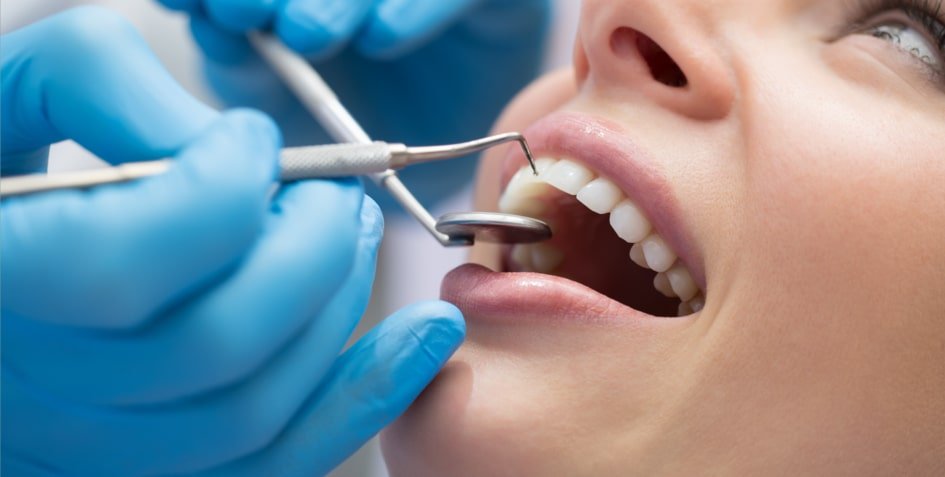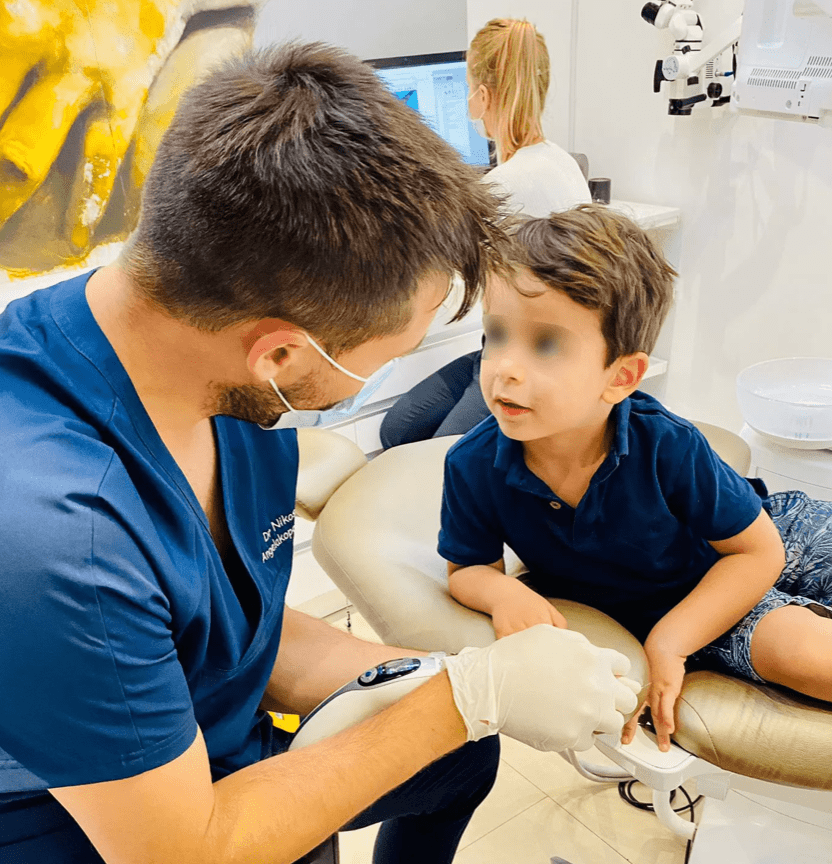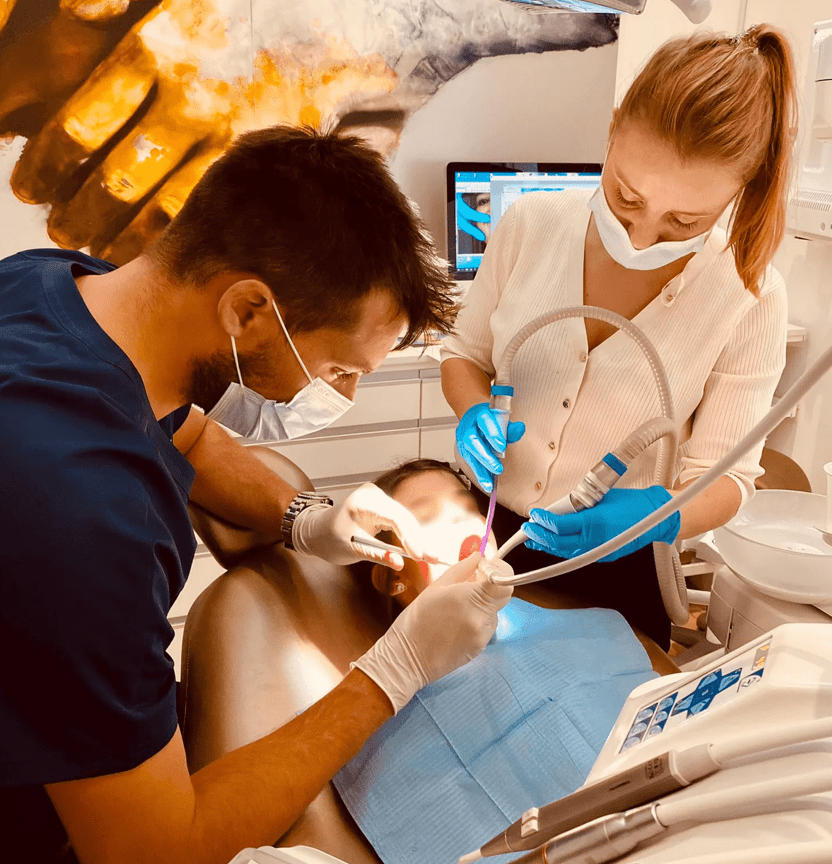Scaling : cares and treatment

Over 50% of the adult population suffers from a form of gum disease. For these people, conventional oral hygiene measures and annual professional cleanings are not enough to keep their mouths healthy. In these cases, more comprehensive periodontal treatment is required, depending on the stage of periodontal disease, can range from scaling to periodontal surgery.
What is the care after a dental scaling? Before answering this question, let's have a look ...
CARE AFTER DENTAL SCALING
Scaling and root planing, commonly referred to as scaling or curettage, is the basic procedure for treating periodontal disease. It consists mechanical removal of bacterial plaque and calculus that has accumulated in the gum line and periodontal pockets that form during the course of periodontitis.
PLAQUE REMOVAL
Plaque removal is performed at Rhône Dental Clinic using ultrasonic instruments, special burs, sprays of bicarbonate or glycine powder and, most importantly, manually used instruments called curettes. The curettes have specific designs to fit the contour of the root: an active side to remove bacterial deposits from the root surface and an atraumatic inactive side contoured to avoid gingival damage. Scaling and curettage are usually performed under local anesthesia, in sessions of varying duration depending on the characteristics of the case, the number of teeth present in the oral cavity, the severity of the disease and so on …The manipulations related to dental scaling are painless, they are performed under anesthesia.However, the movements to eliminate periodontopathogenic bacteria can be unpleasant for some patients. In these cases, a form of additional sedation may be used.
HOW A DENTAL SCALING IS PERFORMED ?
A good scaling and root planing treatment must be based on the previous or simultaneous realization of a complete periodontal probing. It means that the measurement with a calibrated probe of the gingival sulcus, which will provide us with information about the real insertion of the gum on the tooth. The periodontal probing is a diagnostic procedure that provides us with a complete map of the gingival anatomy and shows us the areas where we need to insist on cleaning. The purpose of the initial phase is to inactivate the disease by eliminating the bacterial etiology of the disease. To be successful, we must focus on other aspects that influence the development of the disease, such as general health, stress or smoking. It is sometimes recommended to complement scaling with systemic antimicrobial treatments (antibiotics) and special mouthwashes or toothpastes for the gums. When scaling and planing are used in the maintenance phase, the sessions are usually less intensive and focus on the teeth where inflation and signs of disease activity are detected. If the disease is very advanced or aggressive, curettage is also used to prepare the gum tissue for periodontal surgery following scaling. The effect of the curettage and smoothing is evaluated a few weeks after the curettage and smoothing. To do so, we observe both changes in the gingival sulcus, by a new probing, and the persistence or not of symptoms such as bleeding or gingival inflammation.
AFTER A DENTAL SCALING
1. Following hours, scaling and root planing, slight discomfort may be experienced. It will be adequately controlled by analgesic and anti-inflammatory medications prescribed by the dentist.
2. Oral hygiene maneuvers should be resumed immediately after scaling, including tooth brushing.
3. An extra soft toothbrush may be used for the first few days to brush the teeth in the area of the scaling. However, afterwards the usual dental hygiene rules should be maintained, including flossing, interdental brushing, etc.
4. Products such as hyaluronic acid and chlorhexidine gels, used within 48 hours of scaling, can help speed up the healing of the gums.
5. Increased dentin sensitivity (transient pain when eating cold, hot and sweet foods) is common after scaling and planing due to the removal of root cementum and the opening of dentinal tubules
The sensitivity usually stabilizes on its own in few days. In addition, there are specific toothpastes and mouthwashes for this problem.
Do you need us for a scaling ? During your consultation, your particular situation will be discussed in more detail. We encourage you to ask any questions you may have. If new questions arise after your consultation, please feel free to contact the clinic in Geneva. During the initial examination, we will be able to set up the necessary treatment for your scaling. Moreover, we can define the treatment plan, the expected duration of the treatment and the approximate cost.
Stop by our dental clinic for a visit, or call us at 022 310 50 77 to arrange a consultation










